Research Groups

Arruar: territorial politics and narratives
The Arruar group is committed to research practices as an encounter with other practices that dispute the production of the world, especially those that cultivate territories for reinventing life in more collective, supportive and democratic ways. Making the street a verb provokes multiple meanings that are actualized by taking research to the street, as well as the street to academic practice: arruar as ways of investigating territories from the body, memory, experience and everyday life; as an articulation between the many floors, from the peripheries to the centralities, from the city to the non-city, from the material to the imagined, their flows and mobilities; as a critical experimentation with colonial forms of academic practice based on practices of coexistence and mixing of knowledges. Mobilizing written, imagetic, performative and cartographic experimentation, among other ways of 'doing with', Arruar seeks to empower transformative social action, new ecologies and habitabilities through narratives and territorial policies.
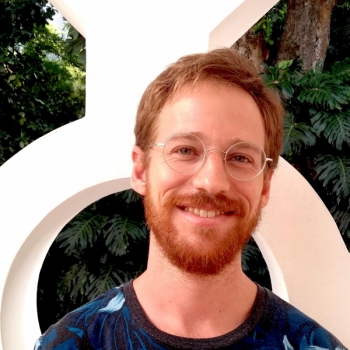

CURA - Culture Urbanism Resistance Architecture
The CURA research group fundamentally seeks to address issues involving the field of Architecture and Urbanism, based on the notions of Resistance and Culture. Its central aim is to develop studies that contribute to mitigating the historic social abyss in the cities of today. Not by chance, the title is organised to build on the acronym that names the group, giving meaning to what the studies and lines proposed seek to build: CURA. Yes, studies that seek to restore the health of cities and buildings and, above all, to heal the wounds opened by social inequality. Since 2015, it has encompassed various academic, design and cultural activities, including: developing and/or supervising research and projects involving UERJ professors and students, as well as researchers from other institutions; organising academic events; and publishing. As an example of the repercussions, we can mention the winning of FAPERJ calls for proposals in 2015 and 2018.
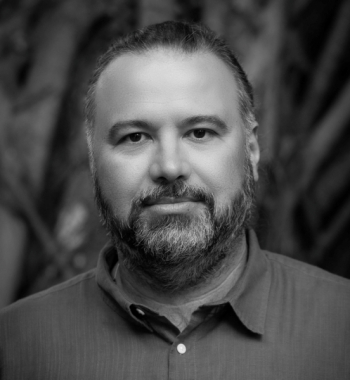

DEMO - Design-Fiction Laboratory
The Design-Fiction laboratory at ESDI/UERJ carries out research activities at the interface between Design and various fields of the Humanities, always investigating the links between the processes of material production and the processes of value production - both in the moral sense (good/bad) and in the epistemic sense (true/false).
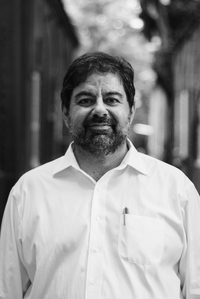
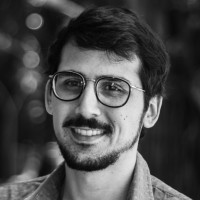

DesEduca Lab - Design and Education Laboratory
DesEduca Lab aims to build knowledge and articulate people, actions and affections focused on the use of design as a means of transforming educational practices. We start from the understanding that design thinking, which runs through the elaboration of artefacts, technological resources and spaces aimed at teaching-learning practices, also articulates transcendent dimensions, highlighting subjectivities, identity politics, epistemologies and becomings that go beyond apparent materialities. For this reason, the laboratory is open to investigating the insertion of design into educational practices in formal education and informal learning spaces, investigating aspects related to design training: pedagogy, curriculum and methodologies, as well as the uses of design in teacher training.
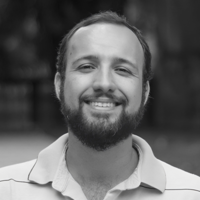
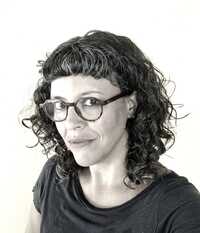
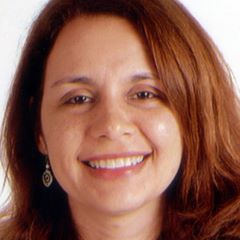

Design and Opression network
Design & Oppression is a network of solidarity between all struggles against oppression founded in 2020. The aim of the network is to establish links of solidarity between all struggles against oppression that involve design as a tool, space or issue to be transformed. This network extends the tradition of Latin American critical thinking from Education, Arts and Sociology to the field of Design. In addition to actions aimed at training critical designers, the network also promotes concrete and ongoing social actions. At the moment, the network carries out the following activities:
production of texts and teaching materialsopen weekly study group (temporarily inactive)series of live video broadcasts summarizing the discussions held by the study groupextension courses such as Designs of the Oppressedparticipation in events and public discussionsSite: https://www.designeopressao.org

LABCULT - Multidisciplinary Laboratory of Critical Thinking in Design: Studies, Research, Events and Production - Culture and Philosophy
LABCULT aims to foster systematic, ongoing and, if possible, daily dialogue in order to accelerate the development of research supported by Philosophy, Design Theory, Semiotics and other related areas of knowledge.
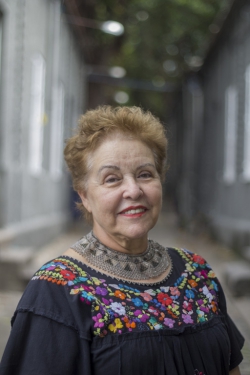

LABSEM - Multidisciplinary Semiotics Laboratory: Studies, Research, Events and Production - Verbal, Non-verbal and Syncretic Semiotics
LABSEM is a multidisciplinary laboratory for studies, research, events and productions based on semiotics. It initially brings together four academic units from different centres at UERJ - in addition to the ESDI at the Centre for Technology and Sciences, the Institute of Letters, the Faculty of Teacher Training and the Faculty of Social Communication at the Centre for Education and Humanities - with a view to promoting technical-academic-scientific dialogue between these areas and their sub-areas.


LaDA - Design and Anthropology Laboratory
A CNPq-certified research group, the Design and Anthropology Laboratory (LaDA) investigates the theoretical and methodological possibilities of combining the modes of knowledge production inherent to design and anthropology, both understood as social sciences. As part of the Research Network for Design Anthropology, an international network that brings together researchers in the field of design anthropology, LaDA is part of the emerging field of knowledge that is taking shape in the midst of the transdisciplinary space between the two areas, anthropology and design.
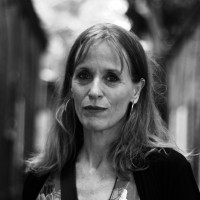
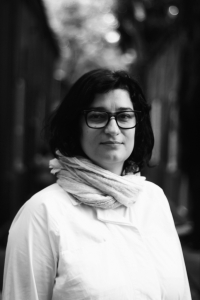

LAGIE - Innovation and Entrepreneurship Management Laboratory
The discussion of innovation management and entrepreneurship has been gaining relevance over the years. At a global level, the United States and China are considered to be the countries that invest the most in innovation and, as a result, end up having an impact on the innovation agenda of other trading partner countries. In Europe, the countries belonging to the European Union aim to increase investment in innovation, but few of them have investments close to the desired level, which is 3 per cent of GDP (EUROSTAT, 2019). Studies carried out by Booz Allen Hamilton draw attention to the lack of correlation between levels of innovation funding and corporate performance (Booz Allen Hamilton, 2006). The need for innovation as a condition for competitive success, the growing movements for greater investment in innovation and the need to obtain better results from the investment made are all elements that make the discussion of innovation management and entrepreneurship in organisations essential. The innovation process, although well known, takes a long time and the results are rarely known (especially in the early stages of idea generation and research). Some of the resources required by this process, such as creativity, knowledge and techniques, are not very controllable, which makes it difficult to allocate funds for their development. These are some of the particularities that make the management of innovation and entrepreneurship a fundamental issue to be addressed within the framework of the proposal to create this laboratory, called LAGIE - Laboratory for the Management of Innovation and Entrepreneurship.
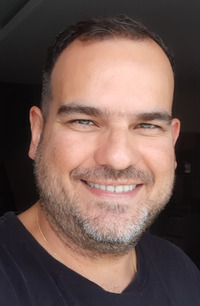
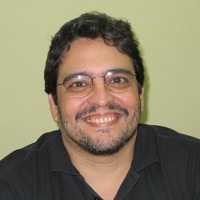

LDI - Interaction Design Laboratory for Digital Artefacts
It is a laboratory for developing projects and research in interaction design that was created with the technical participation of Malmö University, Sweden, and under the sponsorship of FAPERJ. The LDI currently provides its students with PCs and MACs, Arduino microcontrollers, sensors and actuators.
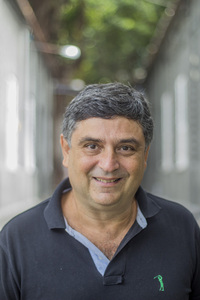

LEGOS - Health Engineering and Management Laboratory
Our mission is to subsidise the formulation of design and management solutions that promote improvements in the care (end), administrative and training (means) functions for the delivery of quality healthcare to the population within the SUS and the supplementary system.
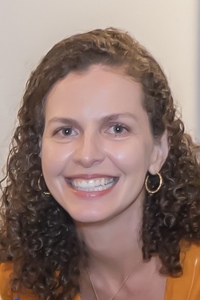

MEMORABLE - affective graphic manifestations
The research group "MEMORABLES: affective graphic manifestations" (UFPE), coordinated by Camila Brito and Solange Coutinho, aims to investigate graphic manifestations of affective memory, as well as design contributions to the development of memorable products. Initially, the group investigates the connections between graphic memory and design, urban graphics and affective memory, graphic memory, vernacular, issues of cultural identity, urban landscape and image studies in design, being able to integrate other areas according to the demands of project development. The group carries out teaching, research and extension activities, disseminating and sharing the group's production, as well as at relevant technical-scientific and cultural events in the area. The group's activities also include project consultancy, guidance on final works and participation in panels on topics related to the research lines.

NUDE - Center for design, body and technopolitics
Research group, certified by CNPq, which investigates the historical, political, social and cultural relations in the field of Design - understood as a device that operates, together with mass communications, in the shaping of discourses and subjectivities - understanding its praxis as a mediation technology in the normalization of bodies in network societies.
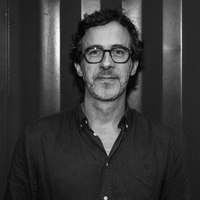

Technicalities and sensitivities
The research group aims to investigate and discuss the ways in which subjectivity is produced in the field of Design, in dialog with other areas of knowledge. The research seeks to explore the multiple possibilities of perception and action in the contemporary world, structured by information and communication technologies. One of the group's areas of study focuses on how perceptions and sensitivities regarding the use of digital technologies are somehow representative in the context of design teaching. Other research addresses issues such as surveillance capitalism and data colonialism, which are crossed by neoliberal logic. We are also investigating the idea of emancipatory education, digital activism and the free software movement. The group is interested in the study of the philosophy of technology and is currently studying the book Technodiversity by the philosopher Yuk Hui, who advocates a multiplicity of cosmotechniques.
